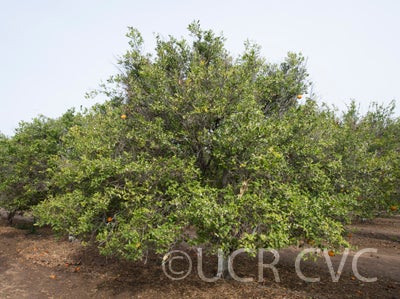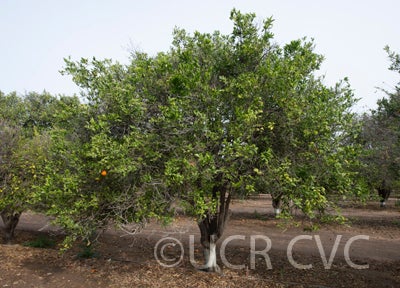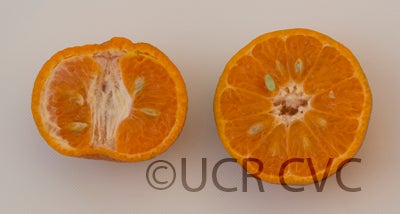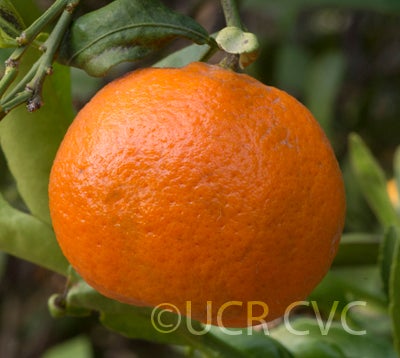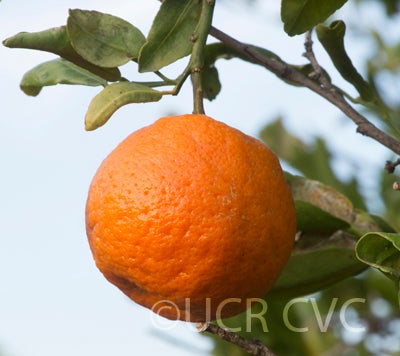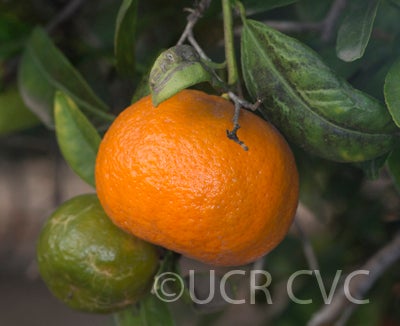Citrus reticulata Blanco
CRC 3328
PI 539504
Source
Received as budwood from Ted Frolich, UCLA Variety Block R-8, T-2a, 1960.
Parentage/origins
Parents unknown.
Rootstocks of accession
Carrizo citrange, C-35 citrange
Season of ripeness at Riverside
Unknown at this time.
Notes and observations
Budwood received at CRC from Frolich is from a seedling tree. Seed came from an old budline Solid Scarlet mandarin with a PI number of 139199-- JAB. Burgess
EMN, 3/1987: Large fruit, medium orange rind. Somewhat puffy, easy peeler, few to moderate seed count, slight rag, flavor sweet but watery, no character.
Notes from T. Tankaka, Citrologia, p. 34, 1961: "Indigenous plants have...spiny erect trunk...very spiny branches, large leaves, fruit small...rind thick, many seeds, pulp acid."
Description from The Citrus Industry Vol. 1 (1967)
"Scarlet is an old Australian variety no longer grown commercially. It produces a medium-sized, seedy, reddish-orange fruit of early midseason maturity that puffs excessively, and keeps poorly. The tree is productive. Emperor fruit are large, oblate; base usually with short furrowed neck; apex flattened or slightly depressed. Rind medium-thin, firm but fairly loosely adherent; surface moderately smooth; color yellowish-orange to pale orange. Segments 9 to 10, readily separable; axis hollow. Flesh color light orange; tender and juicy; flavor pleasant. Seeds moderately numerous, long-pointed, and polyembryonic. Early midseason in maturity. Loses quality rapidly if stored on tree much past maturity.
Tree moderately vigorous, medium-sized, upright, broad-spreading, virtually thornless, and productive.
This very old variety in Australia is thought to have originated there as a seedling from fruit imported from the Orient. R. J. Benton, former government citrus specialist in New South Wales, has stated that Emperor is very similar to if not identical with Oneco of Florida and Ponkan of China. Of interest is the fact that this variety is still grown in seedling orchards in the Paterson River district of coastal New South Wales, where the trees markedly resemble those in the seedling districts of Coorg and Assam in India. According to Bowman (1956), Emperor is probably the leading mandarin variety in Australia. It is also grown to a limited extent in South Africa and northwest India.
Late Emperor is said to have originated as a limb sport of Emperor and the South African Empress variety is reported to be a chance seedling of Emperor.
Availability
Not commercially available in California.
USDA Germplasm Resources Information Network page for Solid Scarlet mandarin
